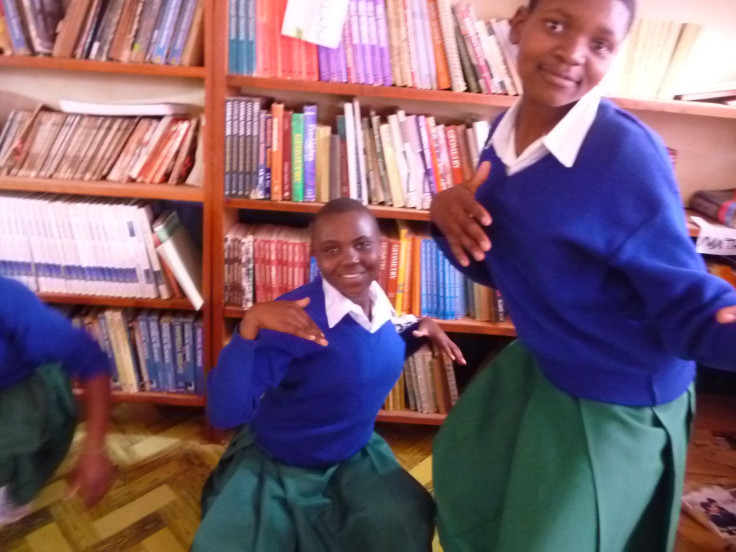Teaching Girls Self-Defense Radically Reduces Rape In Kenya

A short and simple self-defense class for girls who live in the slums of Nairobi, Kenya, dramatically reduced the number of rapes.
The proportion of adolescent girls raped in those areas of the city fell from nearly one in four during the previous year to 9.2 percent during the 10-month period after the girls received training as part of a research study.
"Self-defense training taught these young girls to stand up and say 'no' with confidence, and empowered them to escalate their own defense to a higher level, if necessary," Dr. Neville Golden, who led the study, told reporters. "To our knowledge, this is the first study to demonstrate that a self-empowerment/self-defense course can reduce the incidence of rape in adolescent girls."
A professor of pediatrics at Stanford University and chief of adolescent medicine at Lucile Packard Children's Hospital, Golden also leads a non-profit organization called No Means No Worldwide, which is dedicated to reducing rape rape among girls and boys around the world.
A shockingly common experience, rape is a fact of life for many girls — and boys — growing up in that part of the world, more so than elsewhere, according to Dr. Jake Sinclair, a pediatrician at John Muir Medical Center in Walnut Creek, Calif., who helped run the study.
"There is a strict code of silence among rape victims in Kenya, especially with the stigma of HIV and AIDS," Sinclair said. "Typically, no one is going to admit that they were raped. Victim-blaming is the norm."
Sinclair and his wife Lee helped establish the rape prevention group led by their colleague, Golden. Together, their educational programs have brought training in self-defense as well as education for boys regarding the harm inflicted on victims of rape.
In the study group, 522 high school girls from two impoverished areas, received 12 hours of self-defense training over six weeks, in addition to two-hour refresher sessions at intervals of three, six, and 10 months afterward. Ages 14-21, the girls were asked anonymously about their experiences with rape before and after the training, and were compared to a group of 120 other girls who received a one-hour life-skills class that is part of the national curriculum standard in Kenya.
Prior to the self-defense training, nearly one in four of the girls had been raped, and 90 percent of victims knew their attacker. The investigators focused only on rape rather than the entire range of behaviors classified as "sexual assault" under U.S. law. Among those who received the training, 56.4 percent said they'd used their new fighting skills to prevent rape during the past 10 months. Of this group, half used verbal skills alone — demonstrating a new self-confidence — while one-third began with a verbal defense before escalating to physical contact. Another 17 percent reported using physical defense only in preventing a rape.
The rate of rape fell significantly but most among assaults from the two most common attackers, boyfriends and relatives. Moreover, those who were raped during that time period were far more likely to seek help after an attack.
Sadly, the girls in the control group experienced no decline in rapes during that period.
"We were pretty stunned that the self-defense training was so effective," Sinclair said. "From the testimonials we collected, we saw that even a small girl could disable an attacker and get away, again and again."
The researchers said the self-defense course is a cost-effective health solution for rape prevention, which cost $1.75 per student, in comparison to $86 in health care costs associated with rape, which doesn't even include treatment for possible HIV infection or unwanted pregnancies.
Dr. Cynthia Kapphahn, a clinical associate professor of pediatrics at Stanford and adolescent medicine specialist at Packard Children's, helped with the study. "Often, people focus on women as victims," she said. "This work shows that it's also important to focus on them as empowered beings; that approach can have an important role in a woman's ability to protect herself."
Funded by Ujamaa-Africa, a nongovernmental organization promoting health for women and children, the study had at least one other ancillary benefit: local women were employed as instructors.
Source: Sinclair, Jake, Sinclair, Lee, Otieno, Evans, Mulinge, Munyae, Kapphahn, Cynthia. Program Reduces the Incidence of Sexual Assault in Kenyan Adolescent Girls. Journal Of Adolescent Health. 2013.



























